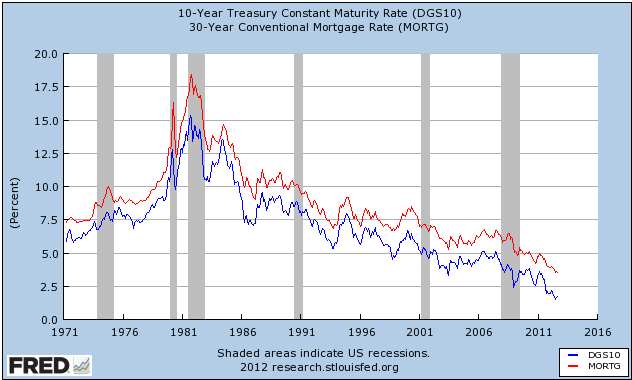Is Now A Good Time to Invest in Municipal Bonds
Post on: 8 Июль, 2015 No Comment

Marketwatch recently posted an article about the attractiveness of Municipal Bonds, pointing out that some long-term munis pay a tax equivalent rate of over 7%. But investors should consider several factors before deciding to invest in Munis, including the type of municipal bond, the return on CDs and other equivalent investments, and how long they plan to hold the muni.
Municipal bonds are issued by towns and states to pay for local infrastructure projects like a new school, a waterworks project, a bridge, etc. They are generally relatively secure and are tax exempt. Read a more detailed description of municipal bonds here.
Lately, during the credit crunch yields on municipal bonds have increased by as much as .5% and after the tax benefit is factored in, 30 year municipal bonds can provide yields of 7% or higher.
Marketwatch argues that the credit crunch problems are not really relevant for municipal bonds and should not have a material impact. That is, sub-prime mortgage defaults should not impact the municipal bond market. Therefore you can get a pretty high rate, especially on long-term munis relatively risk free.
There are a couple of things to consider before rushing out to purchase a muni:
1. The risks on some types of Munis may have indeed increased because of the sub-crime crisis and the credit crunch. There are two main types of municipal bonds general obligation bonds and revenue bonds. General obligation bonds are repayed through tax revenue and if tax revenue falls due to falling home prices or foreclosures, this can impact the ability of the municipality to meet its interest payments.
On the other hand, Revenue bonds are generally repayed out of the income from the project being finances and are less susceptible to fluctuations in the real estate markets.
2. The tax equivalent rates on short term munis (2-5 years) are not much different than CDs which are fully FDIC insured at deposit amounts up to $100,000. Two year municipal bonds yield approximately 5.75% compared to the highest CD rate of 5.41%. The CD is FDIC. For longer periods the municipal bond offers a better rate differential.
3. The longer term munis are more susceptible to lose value if interest rates rise. Thats because bond values move in the opposite direction of interest rates. If you hold a 7% bond and someone can now buy a 9% bond because interest rates are up, your bond becomes less desirable and you need to lower its price for someone to buy it from you. If you plan on holding the bond to maturity, this isnt an issue but 30 years may be a longer time-period than many are willing or able to wait.
If you decide to go with munis, looks for revenue bonds or find general obligation bonds from areas that do not expect high defaults and a significant drop in prices Northeast, California, etc. This will help to insulate you from any potential fallout from the slow real estate market, the credit-crunch and the sub-prime mess.
Read the BestCashCow Municipal Bonds section for a more detailed explanation of Municipal Bonds.














